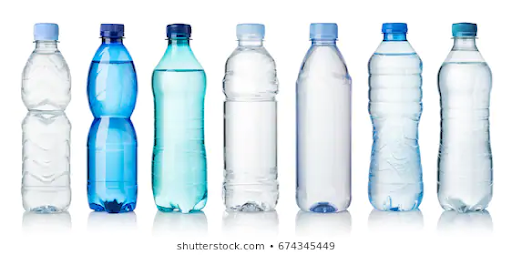
Update: both Bill 32-20 and 33-20 have passed and been signed into law! For more about our work to move Maryland beyond incineration and toward zero waste, click here.
Here is our testimony in support of Montgomery County Council Bills 32-20 and 33-20, to ban unrecyclable plastics in Montgomery County:
October 5, 2020
Dear Montgomery County Council,
On behalf of Clean Water Action’s over 10,000 members within Montgomery County, we urge you to support and pass Council Bills 32-20 and 33-20. Together, these pieces of legislation will help Montgomery County fulfill its existing mandate to eliminate unrecyclable plastics; following this step so that actually recyclable or reusable materials can be used is a common-sense solution that will reduce plastic waste and save the county money.
Polystyrene (#6) plastics cannot be recycled in Montgomery County's facility, and plastic straws' small size means that they slip through the cracks at the facility and don't carry labels to say what kind of plastic they're made of. Well-meaning residents and businesses use and recycle #6 plastics and straws, but once in the recycling stream either county employees have to spend time separating it out again, or it remains and contaminates the recycling stream, reducing or even negating its value. If properly disposed of in the trash or separated at the recycling facility, these plastics are then burned at the trash incinerator in Dickerson, essentially acting as a fossil fuel since they are oil-based. Eliminating plastic straws, as Bill 32-20 does, and #6 plastics, as Bill #33-20 does, are meaningful steps forward.
At the September 15 public hearing on Bills 32-20 and 33-20, several groups raised concerns and suggested alternatives to the straw and #6 plastics ban. We would like to respond to several of these suggestions with additional information and context for the Council.
In regards to Bill 33-20, banning #6 plastics, the American Chemistry Council testified in opposition and suggested that it might work with the County to set up a recycling facility via its Foam Recycling Coalition Grant. While the grant could theoretically provide the necessary funds to set up a recycling facility, one of the requirements to be eligible for the grant is that the community in question cannot currently have a foam ban. In 2016, the county council passed Bill 41-14, banning EPS foam containers and making Montgomery County ineligible for the grant. Even were the county eligible, it would be a waste for the county to invest in the additional costs necessary to implement this theoretical recycling program, simply in order to keep using a product that harms the environment. Much better to move away from these unrecyclable materials entirely toward reusable, compostable, or actually recyclable materials instead.
In regards to Bill 32-20, eliminating plastic straws, the Montgomery County Chamber of Commerce urged the Council to not move forward with this bill but to create an education campaign first: more outreach to inform county residents like you that #6 plastics can't be recycled. The Last Straw Campaign was cited at the hearing as a successful model for educational campaigns about the problems with plastics, with the implication that with programs like this in place, legislation would not be necessary. However, the Our Last Straw Campaign Manager, Julie Sharkey, stated in her own testimony in support of this bill that effectively limiting the amount of single-use plastic straws used “cannot be completed without the legislation to support it.” As currently written, 32-20 requires a outreach campaign and creation of educational materials to inform restaurants and consumers of the plastic straw ban. This precedes the implementation of the straw ban and allows businesses to make the necessary adjustments. Education measures alone cannot solve the core problem of these unrecyclable plastics. If enough County residents know to carefully inspect their plastic waste and put #6 plastics in the trash, it will save money and time taking them out at the recycling facility, but it will just mean that those plastics go to the Dickerson trash incinerator: being burned as a fossil fuel, adding to local air and water pollution and climate change.
Finally, restaurants and their advocates raised concerns about HIPAA and ADA laws when eliminating the use of plastic straws. We want to bring your attention to San Francisco’s existing legislation banning plastic straws, which explicitly states:
(c) Nothing in this Chapter 16 shall conflict, or be construed to conflict, with the Americans with Disabilities Act, the Unruh Act, the Disabled Persons Act, or other applicable laws concerning the rights of individuals with disabilities. In particular, nothing in this Chapter shall restrict, or be construed to restrict, the availability of single use plastic straws to individuals who may require and request the use of single-use plastic straws.
(i) It shall not be a violation of this Chapter for any place of public accommodation to provide single-use plastic straws to individuals who request such plastic straws.
(ii) Nothing in this Chapter shall restrict, or be construed to restrict, the ability of places of public accommodation to purchase or otherwise acquire single-use plastic straws in sufficient numbers to meet the needs of individuals who request such plastic straws.
(d) In addition, nothing in this Chapter shall restrict, or be construed to restrict, the availability of single-use plastic straws to individuals who may require use of plastic straws in relation to medical circumstances. 3
Likewise, Bill 32-20 requires no proof of need and does not violate HIPAA or ADA.
We hope that this additional information is of use to you in considering Bills 32-20 and 33-20, and we urge you to support these measures to make Montgomery County a more sustainable and healthy place.
Sincerely,
Jennifer Kunze
Maryland Program Manager
Clean Water Action
Gustavo Ballesteros
Wheaton High School Class of 2021
Clean Water Action Maryland Intern


